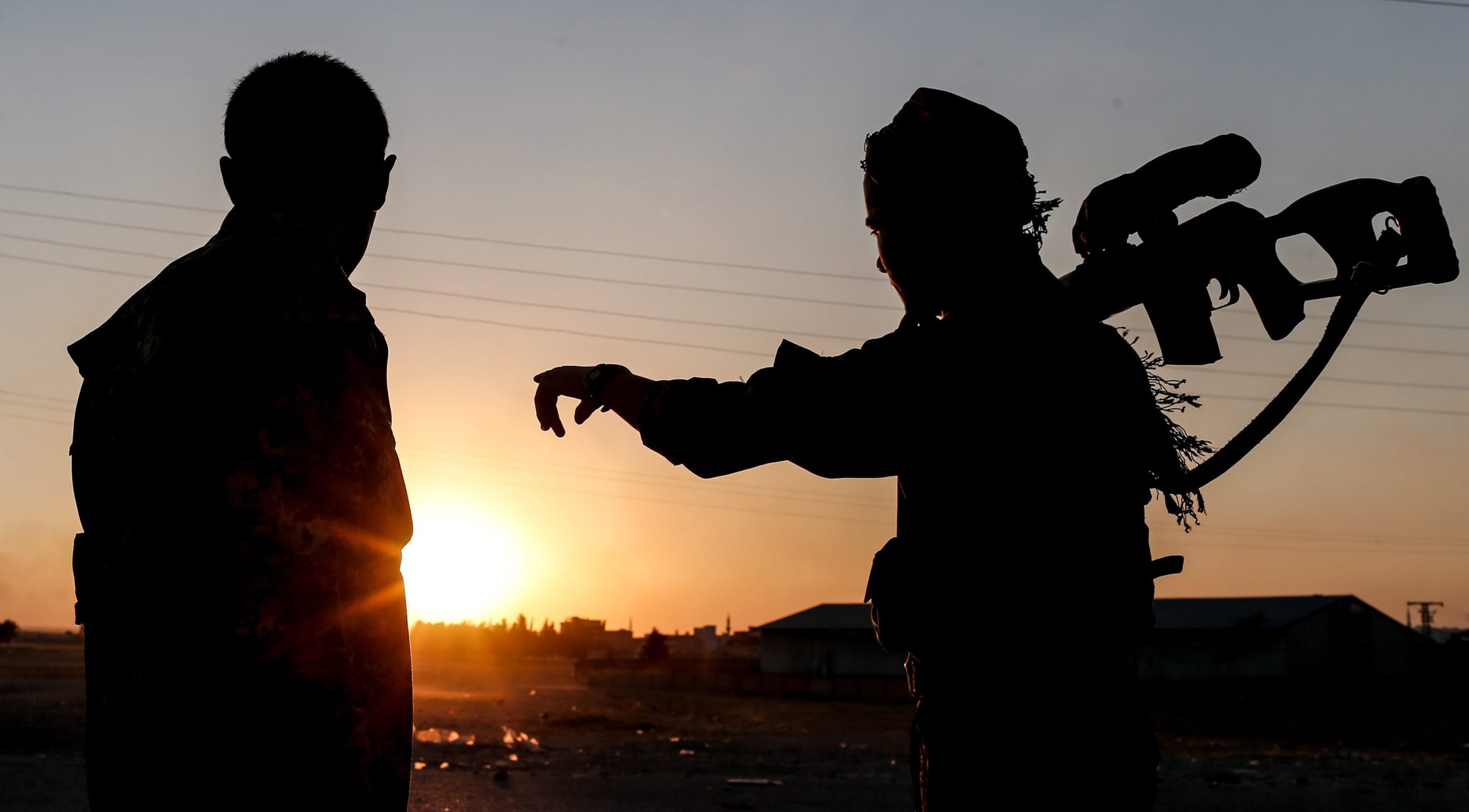
Ethnic Kurds—who on Tuesday scored their second and third significant victories over ISIS in the space of eight days—are by far the most effective force fighting ISIS in both Iraq and Syria. But they appear to intent on keeping all the ground they’ve taken from the militant group for their own national project, endangering the larger cause of keeping these two battered nation-states in one piece, and raising the prospect of another war patiently waiting at the conclusion of the current one.
The recent run of victories in Syria illustrates the Kurds’ battlefield capabilities. Six months after winning in Kobani, the Turkish border town where as many as 1,000 ISIS fighters died, Syrian Kurd fighters on June 15 took another border town, Tel Abyad, creating a corridor on Syria’s northern border and—far more important—cutting off the main supply line to Raqqah, ISIS’s capital 60 miles due south. On Tuesday, the Kurd forces—a Syrian affiliate of the Kurdistan Worker’s Party, or PKK—seized a military base known as Brigade 93, as well as the town adjoining it, Ain Issa. The victories put them within 30 miles of Raqqah.
The Kurds fight so well largely because, in addition to trying to defeat an extremist enemy, they’re fighting for something—a country of their own. The future Kurdistan may be severely buffeted across Arab portions of the Middle East—neither Yemen nor Libya have functioning central governments, and both Syria and Iraq exist largely as shards of sect, tribe and ethnicity. But the Kurds, despite their large numbers (about 30 million worldwide), as well as their shared language, culture and identity, have never had a nation. But they’re getting closer to one with every battle.
In Iraq, Kurdish forces armed by both Iran and the U.S. have taken perhaps 10,000 square miles from ISIS since last fall. They also snapped up the disputed city of Kirkuk, rich in oil and cultural significance to Kurds and Arabs alike—and are preventing Arabs from returning to some villages. Houses are marked “Reserved for Kurds,” and Kurdish checkpoints declare, “No Arabs Allowed.”
These acts on the ground are clearly intended to create “facts on the ground,” A political reality that Kurdish leaders will point as they navigate their relationship with the Iraqi central government in Baghdad, to which they are currently bound by oil-revenue contracts, if little else. As valiantly as the Kurds have fought, losing an estimated 1,000 men and women over the last year against ISIS, they see the conflict in terms of national liberation. Massoud Barzani, who leads the Kurdistan Regional Government, has repeatedly said Kurds will not fight for the rest of Iraq, or for the idea of it.
“Relying on Iraqi Kurds to act as coalition boots on the ground may eliminate some [ISIS] safe havens, but it is fueling Kurdish land grabs,” warns Denise Natali, a senior research fellow at National Defense University in Washington. “Iraqi Kurds are using U.S. airstrikes and the political vacuum in northern Iraq not only to push back ISIS, but also to recapture disputed territories and oil fields—some of the very measures that have fueled Sunni Arab resentment since 2003.”
Human Rights Watch documented instances of Kurds confining Sunni Arabs to specific areas to prevent their return, actions that Natali says undermine the attempts by the U.S. and Baghdad to lure Iraq’s Sunni Arabs away from the orbit of ISIS and back into Iraq’s national enterprise: “It’s all about addressing the Sunni Arabs’ grievances,” she tells TIME.
Iraq’s Kurds have tried this before, but more gently. After the 2003 U.S.-led invasion of Iraq removed Saddam Hussein, Kurds left the autonomous region that had been protected by U.S. warplanes for the previous decade, and moved into the northern Iraq city of Kirkuk—not with armor, which they don’t have, but with garbage trucks and street cleaners. The idea was to start providing essential government services to the oil-rich city, which is also claimed by Iraq’s Sunni population, and thereby assume control in the softest possible manner.
Kurdish leaders wanted everyone on their best behavior: They ordered looters to return 300 cars looted after the fall of the city, and fretted openly about acts of revenge, including rapes, being perpetrated against Arabs who had pushed them off their land.
It didn’t work. U.S. forces ordered the garbage trucks sent home, and for the next decade Iraq’s Kurds were forced to employ more gradual methods, mostly moving their people into the city, in order to win any referendum on its future. Then ISIS made its blitzkrieg, taking Iraq’s second-largest city of Mosul a year ago, then Tikrit and moving toward Kirkuk. But the Kurds got there first, and aim to hold on to it, and every other square mile they’ve won—including territory claimed by Arabs.
“We have to be careful that in our pushing back ISIS, we are not setting the stage for the next conflict,” says Natali. So far, the U.S. has had the leverage to hold the situation together, with help from Turkey, home to half the world’s Kurds. The maddening paradox is that the situation grows more difficult to manage with every gain against ISIS, the shared enemy.
Meet the Kurdish Women Taking the Battle to ISIS
![18-year-old YPJ fighter Torin Khairegi: “We live ina world where women are dominated by men.We are here to take control of our future..I injured an ISIS jihadi in Kobane. When he was wounded, all his friends left him behind and ran away. Later I went there and buried his body. I now feel that I am very powerful and can defend my home, my friends, my country, and myself. Many of us have been matryred and I see no path other than the continuation of their path." Newsha Tavakolian for TIME Zinar base, Syria "I joined YPJ about seven months ago, because I was looking for something meaningful in my life and my leader [ Abdullah Ocalan] showed me the way and my role in the society. We live in a world where women are dominated by men. We are here to take control of our own future. We are not merely fighting with arms; we fight with our thoughts. Ocalan's ideology is always in our hearts and minds and it is with his thought that we become so empowered that we can even become better soldiers than men. When I am at the frontline, the thought of all the cruelty and injustice against women enrages me so much that I become extra-powerful in combat. I injured an ISIS jihadi in Kobane. When he was wounded, all his friends left him behind and ran away. Later I went there and buried his body. I now feel that I am very powerful and can defend my home, my friends, my country, and myself. Many of us have been matryred and I see no path other than the continuation of their path."](https://api.time.com/wp-content/uploads/2015/04/kurdish-women-fighters-syria-isis-newsha-tavakolian-09.jpg?quality=75&w=2400)
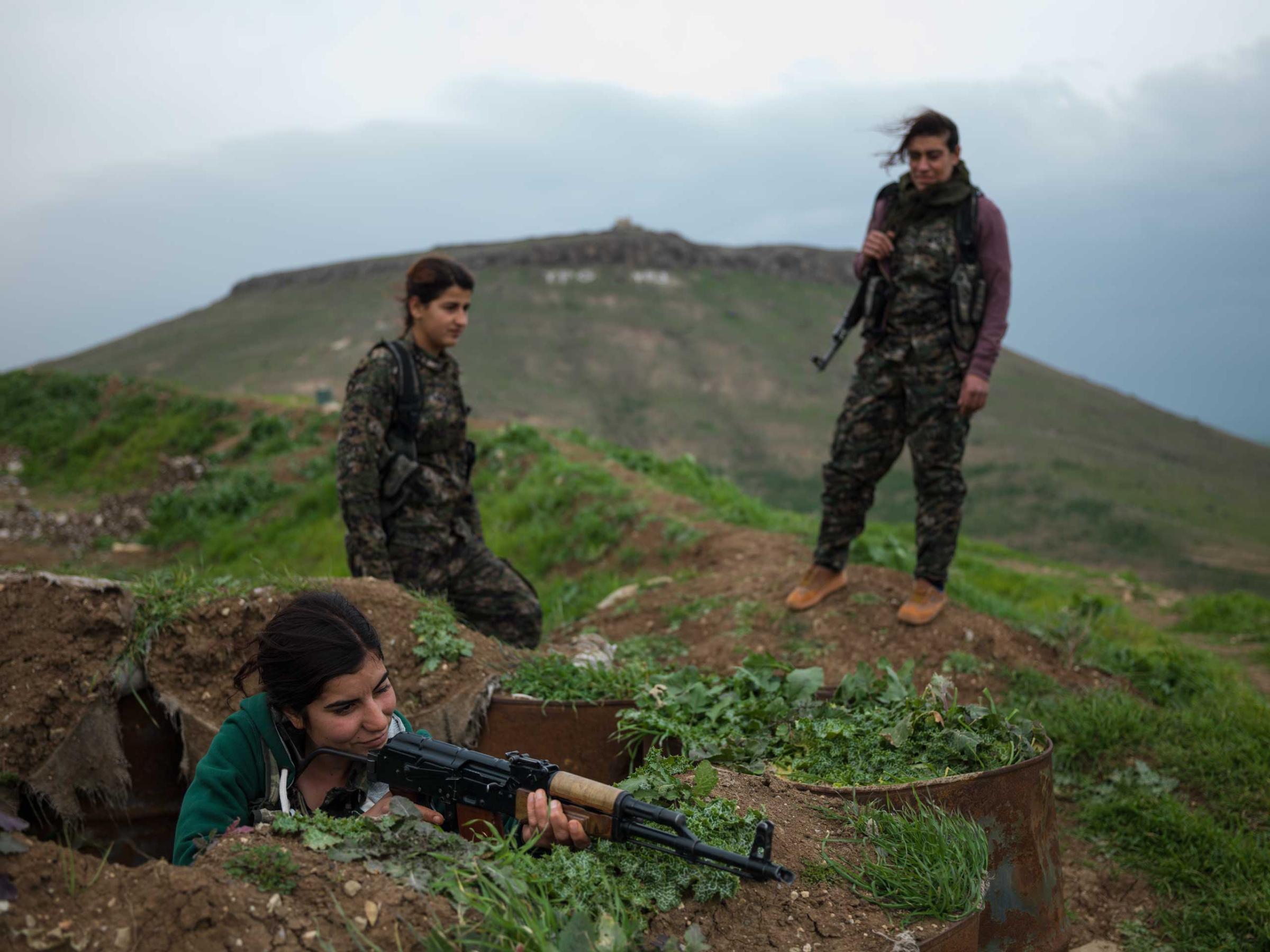
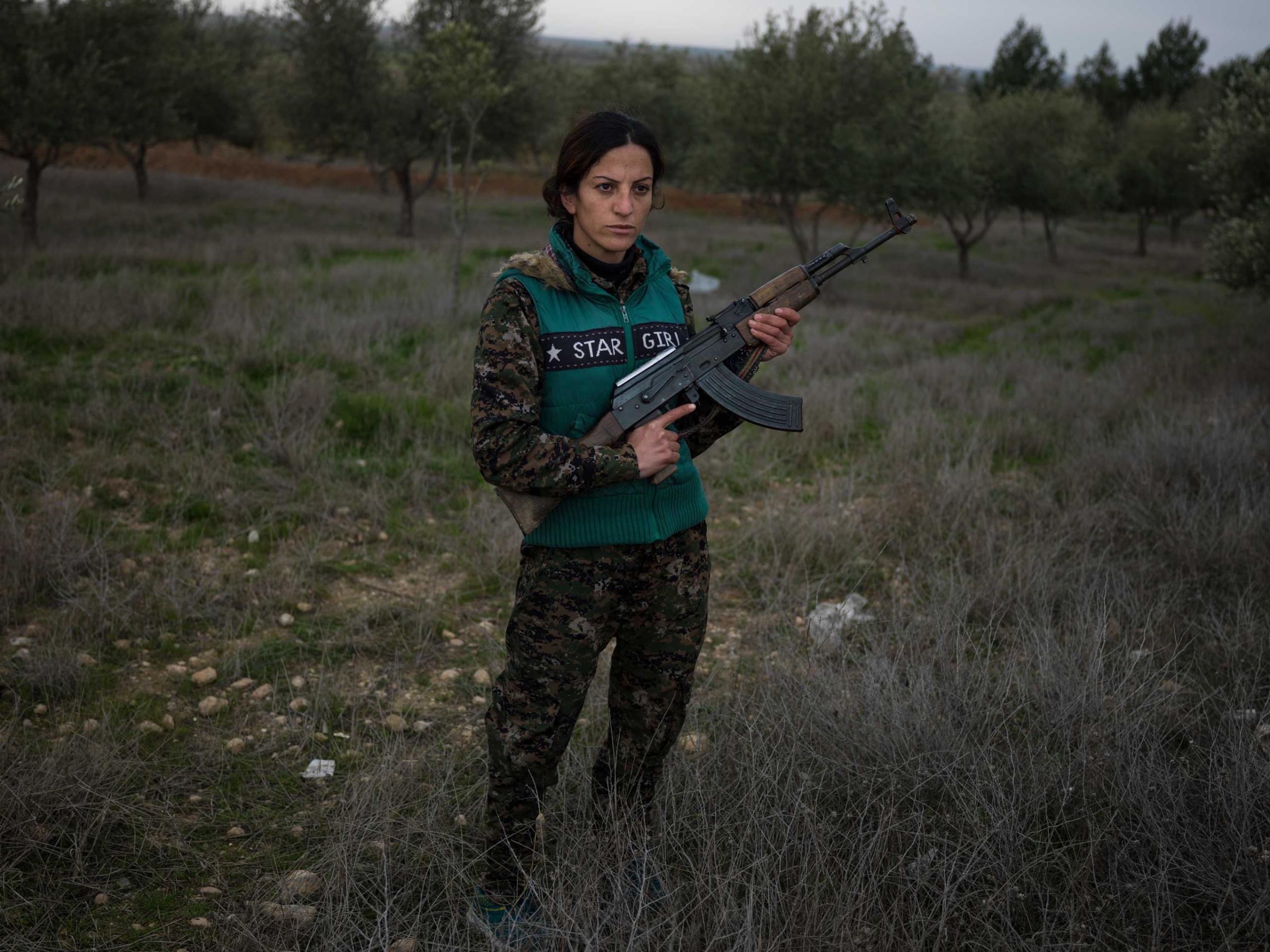
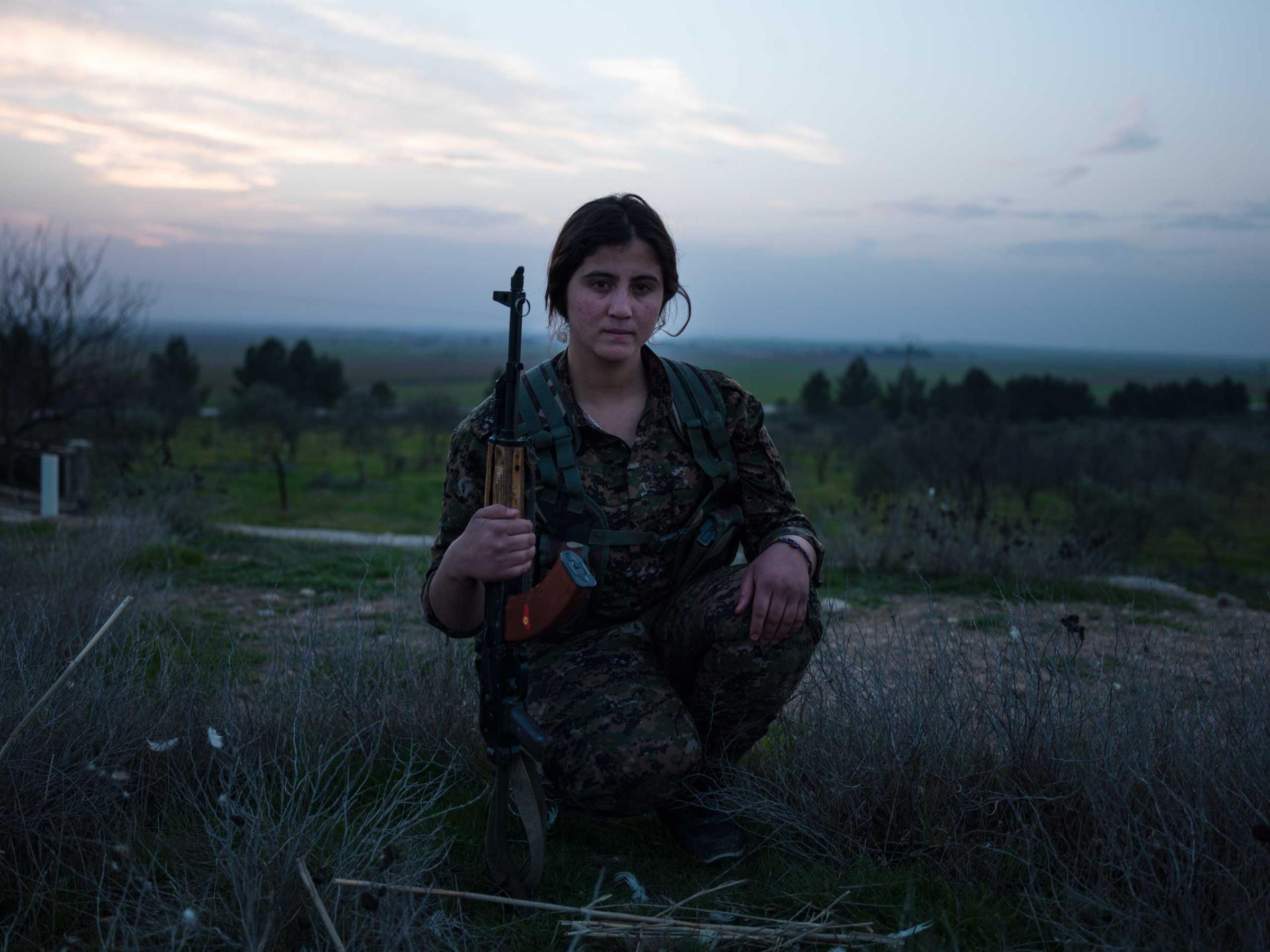
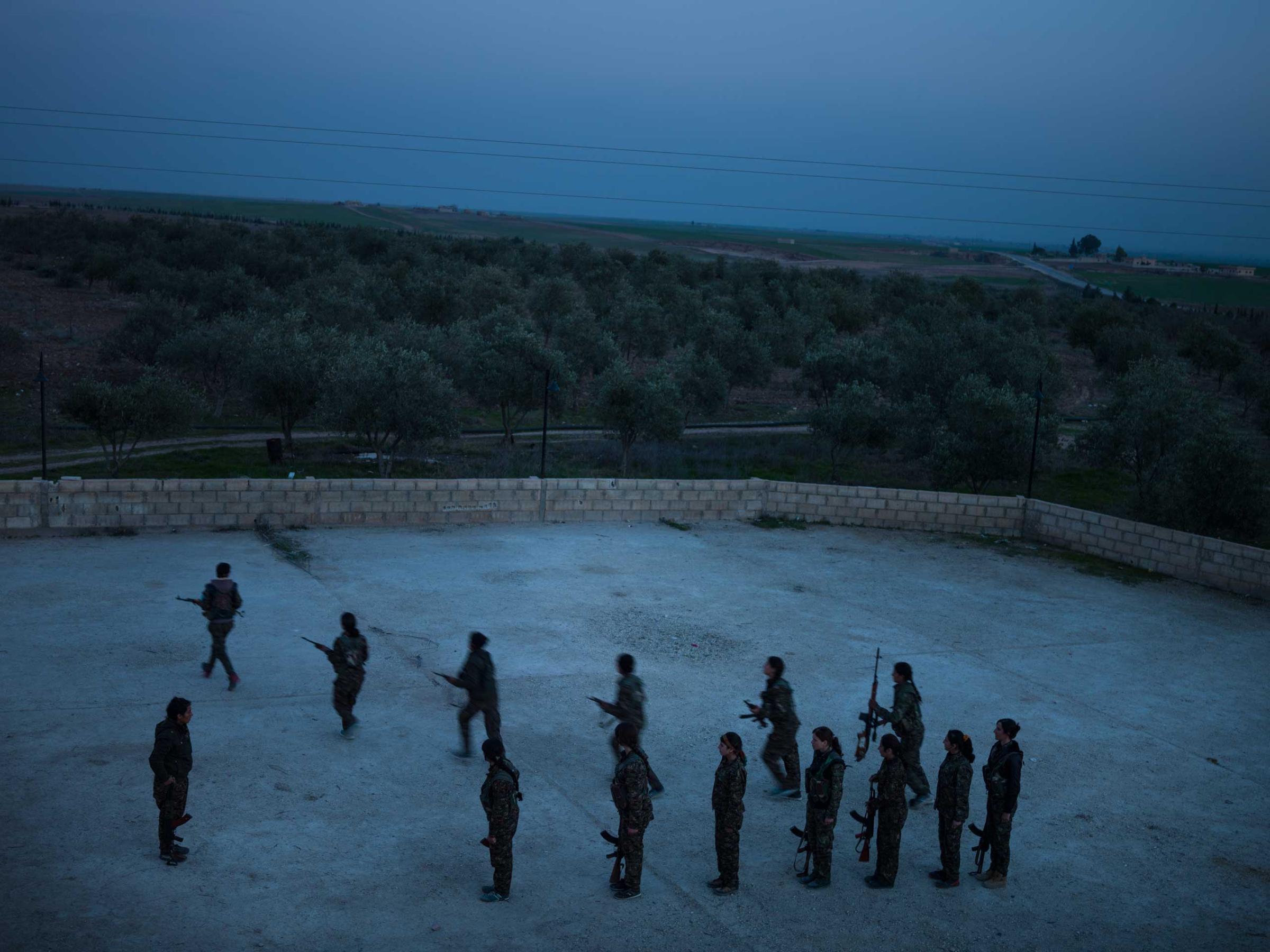
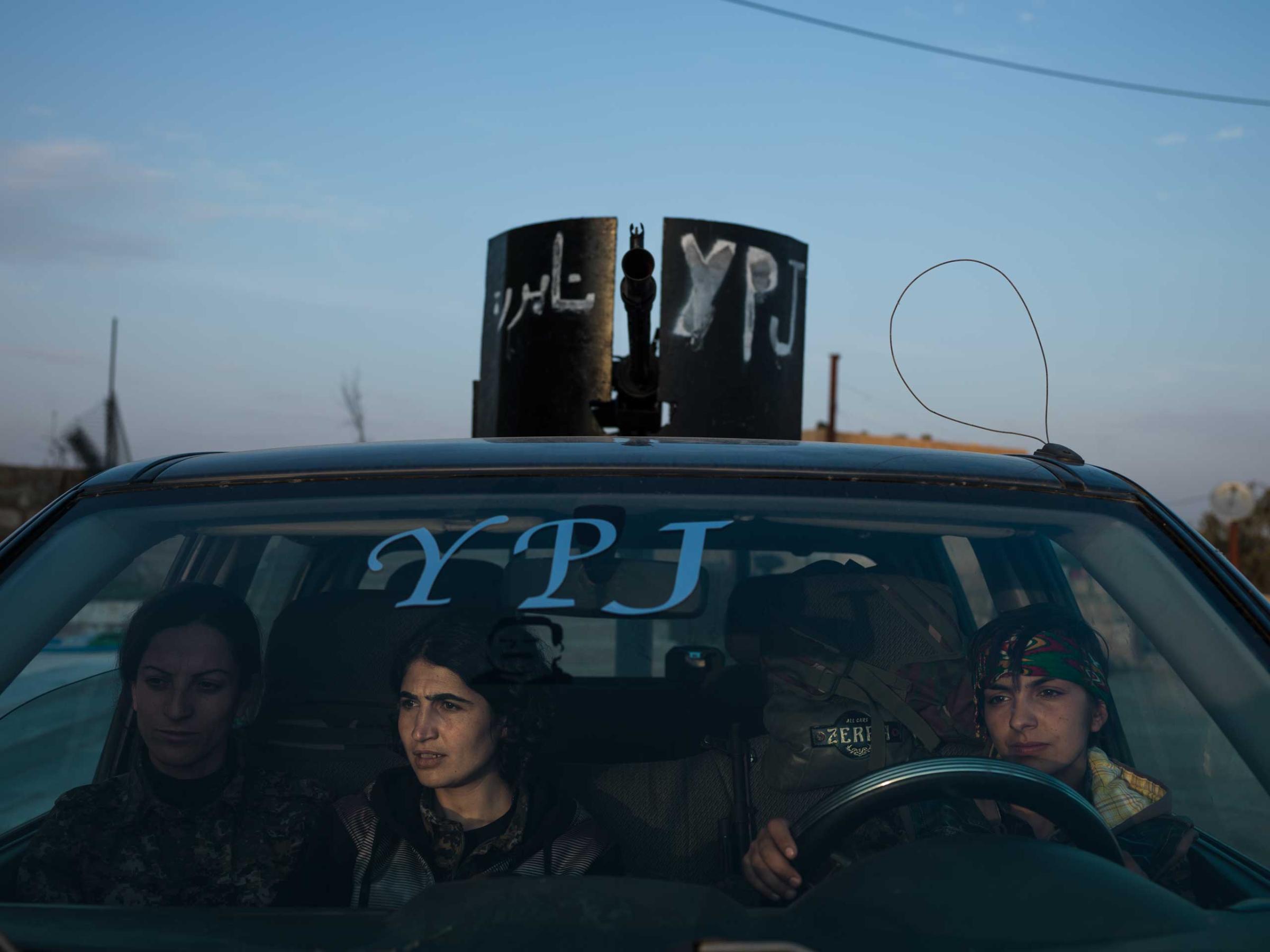
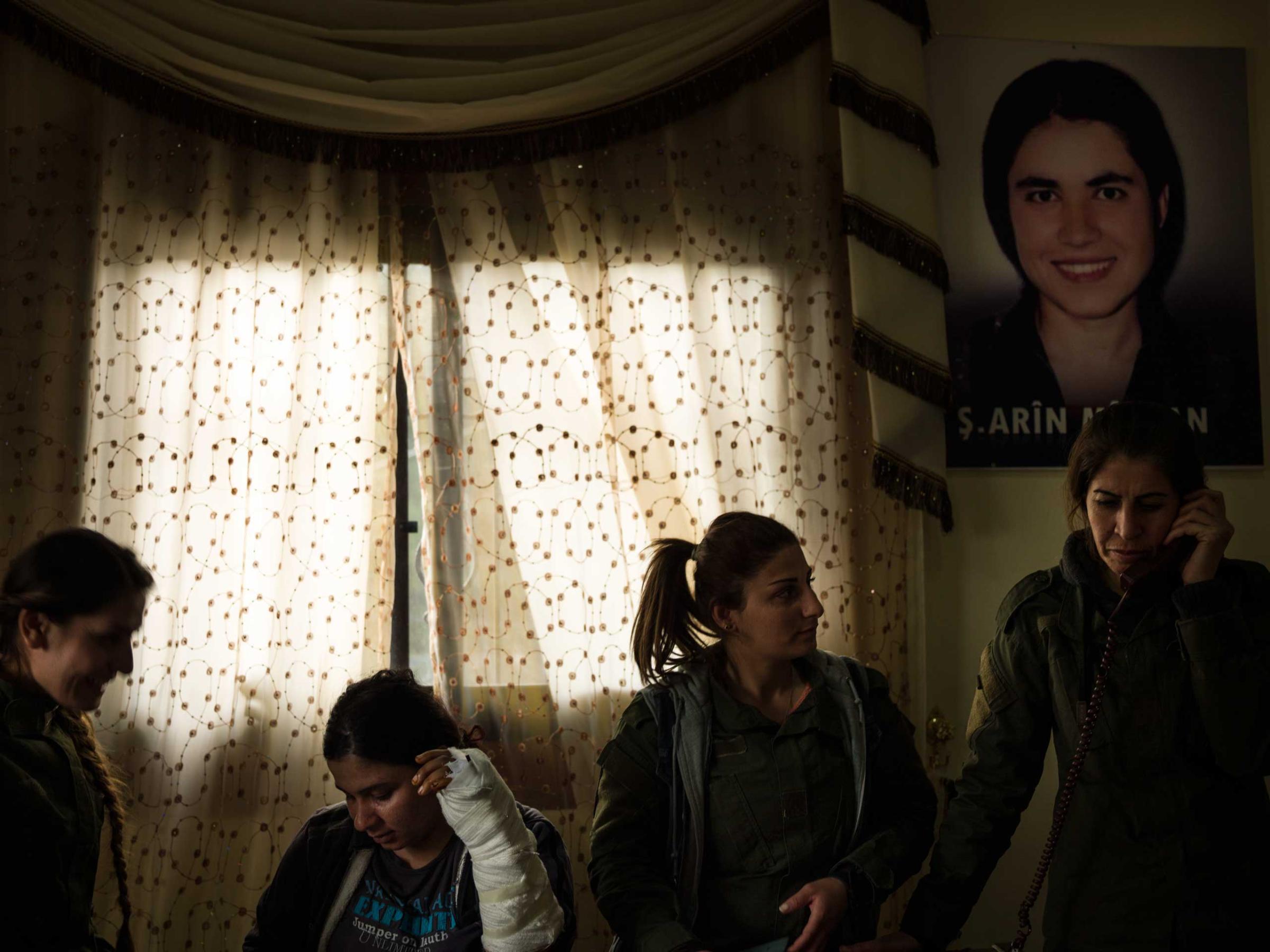
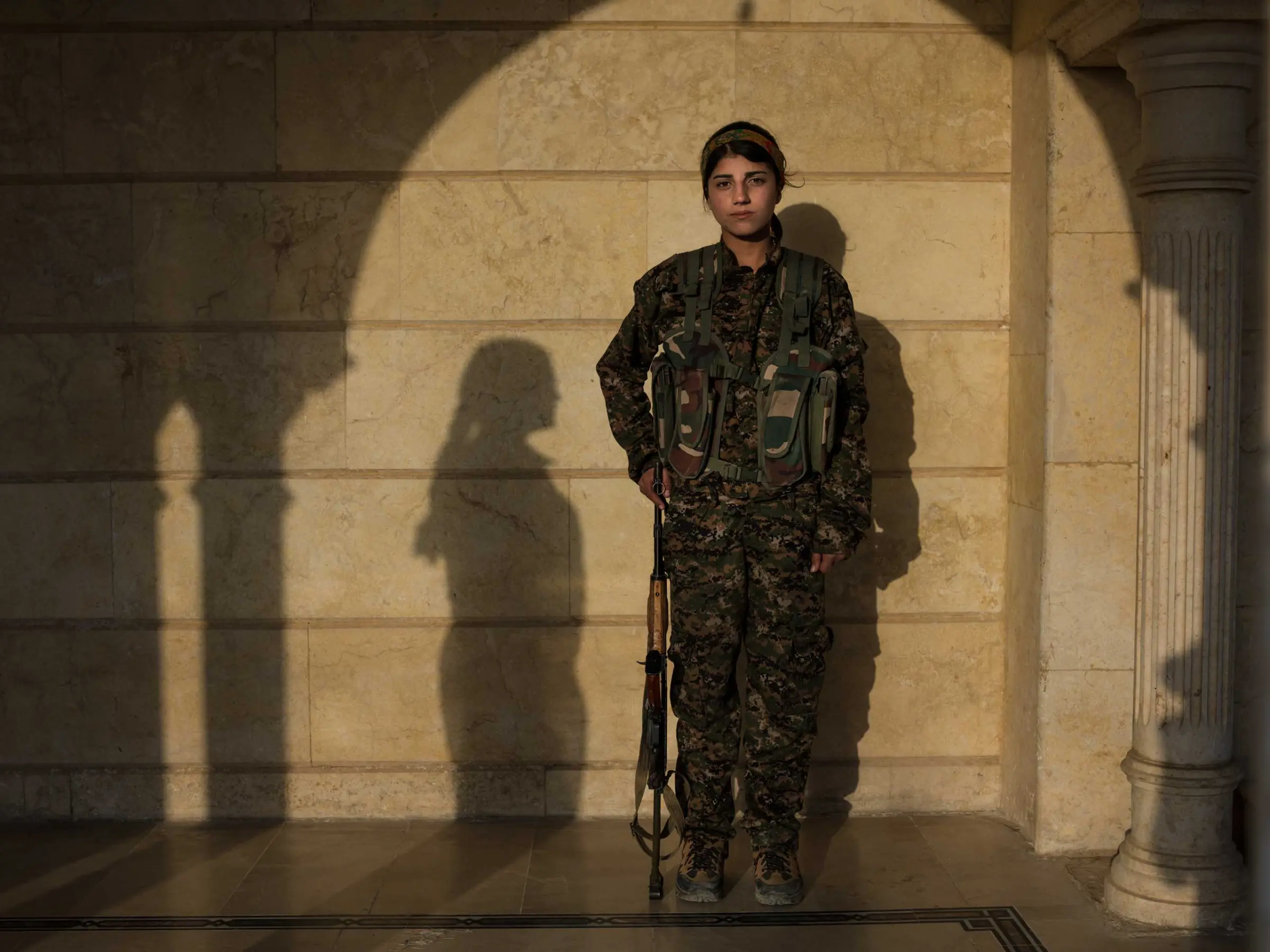
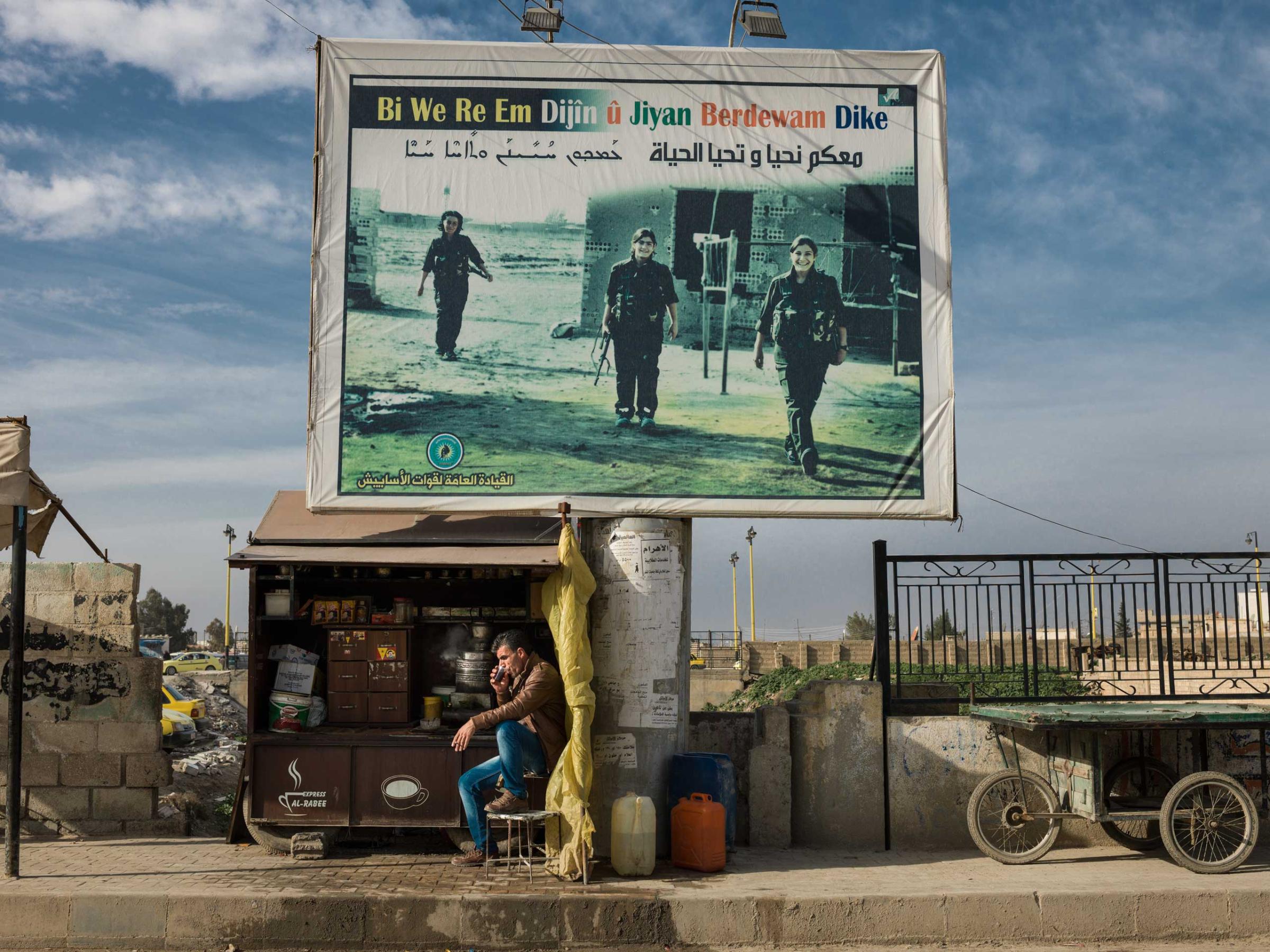
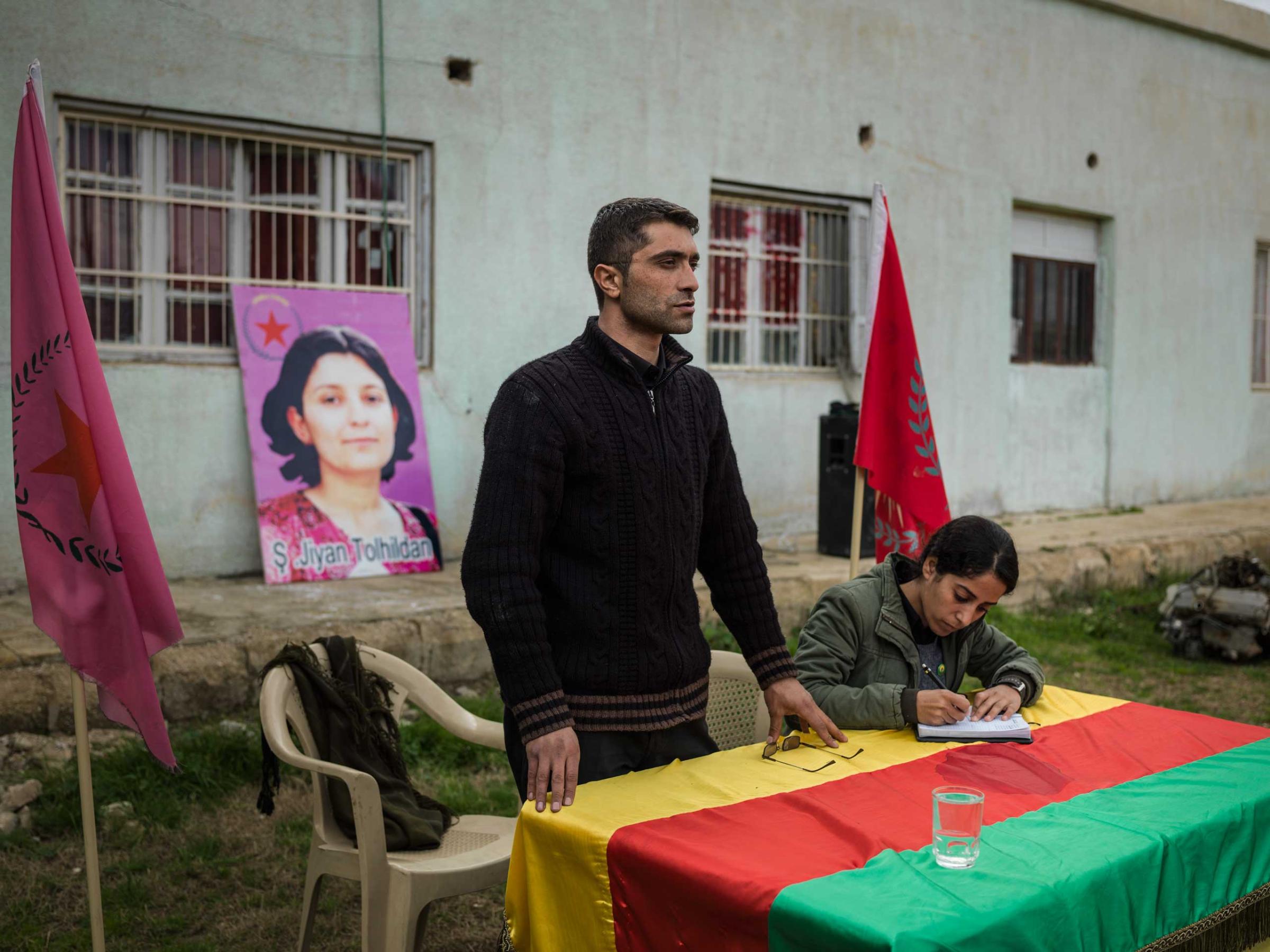
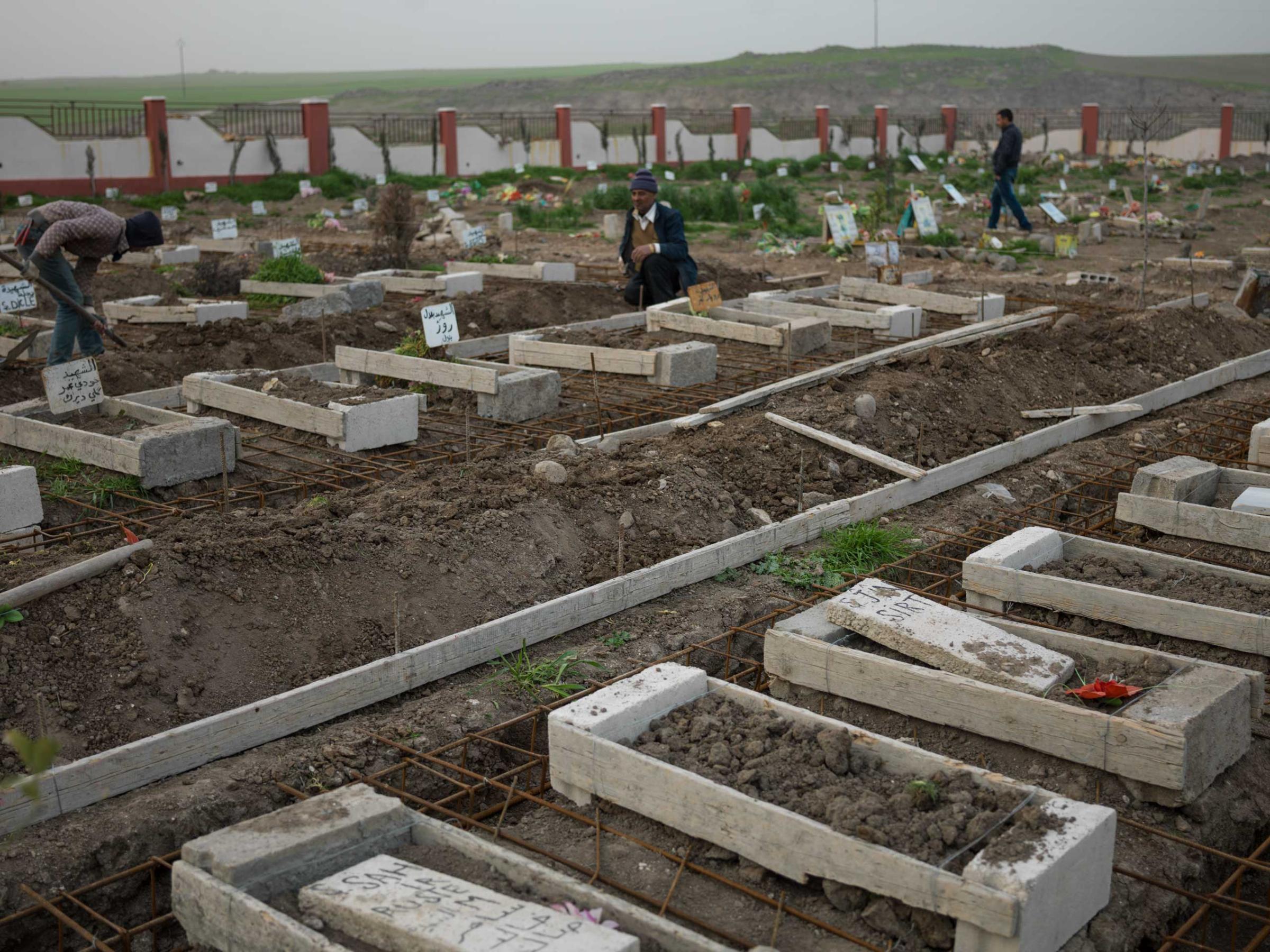
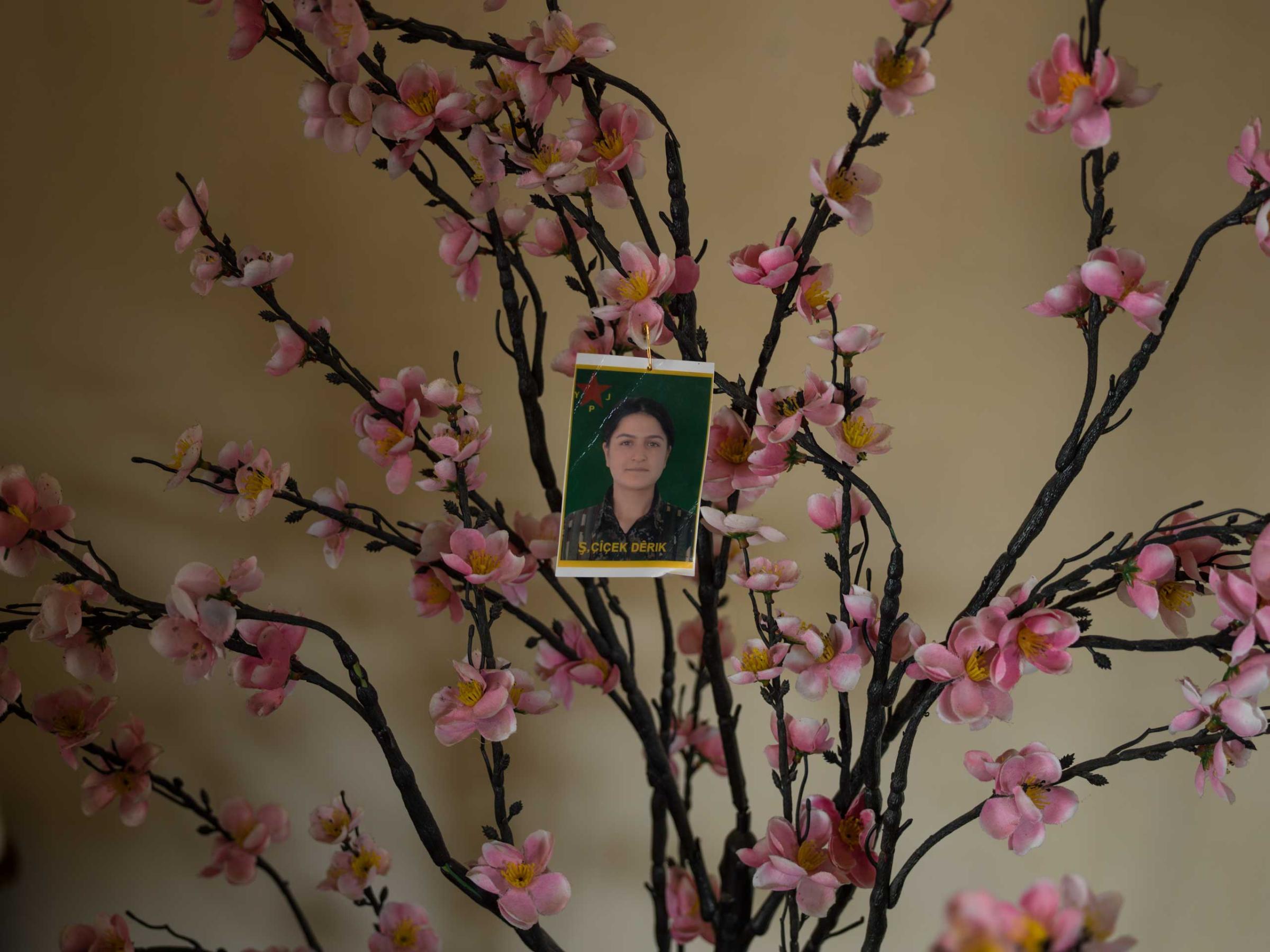
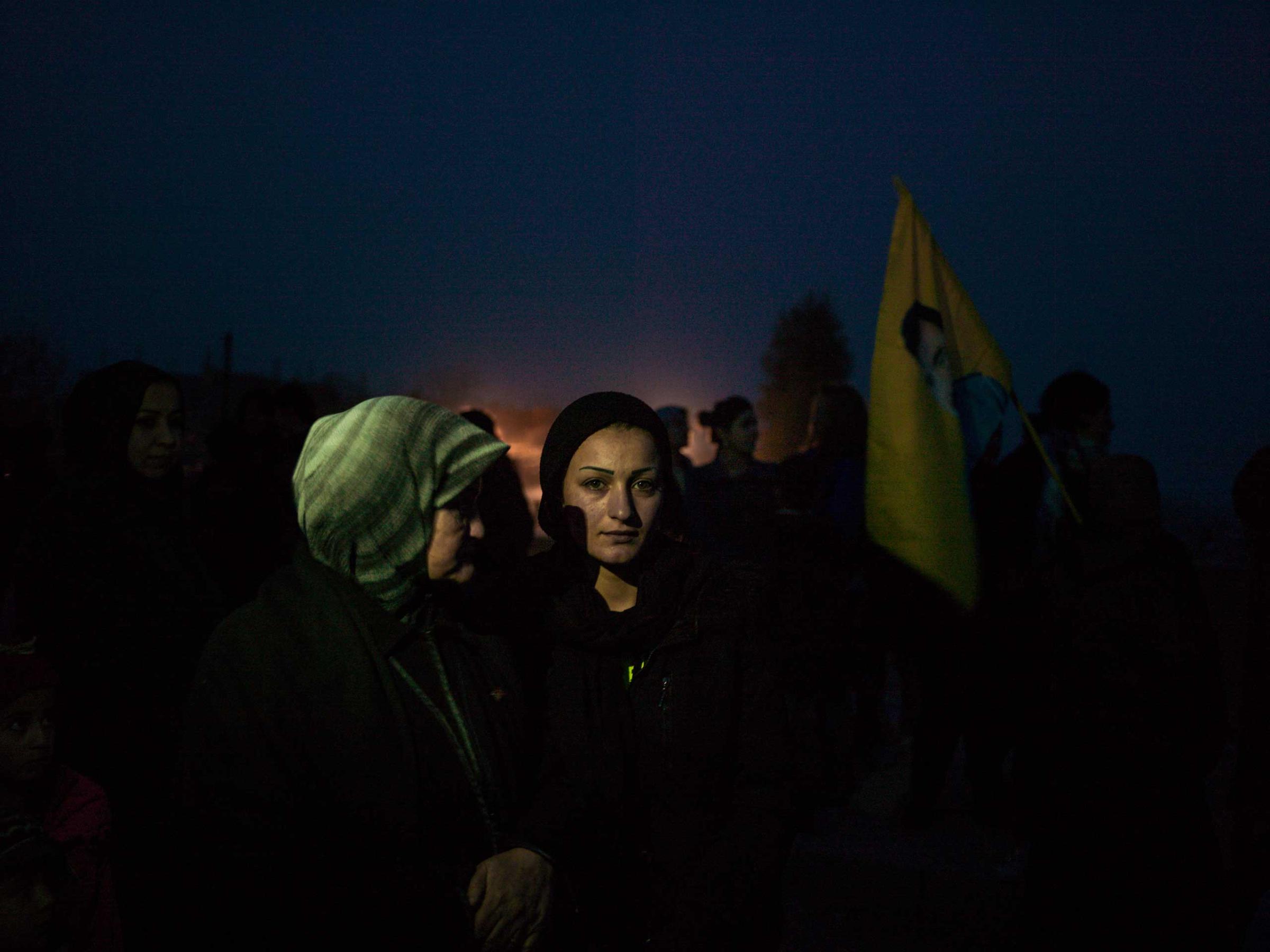
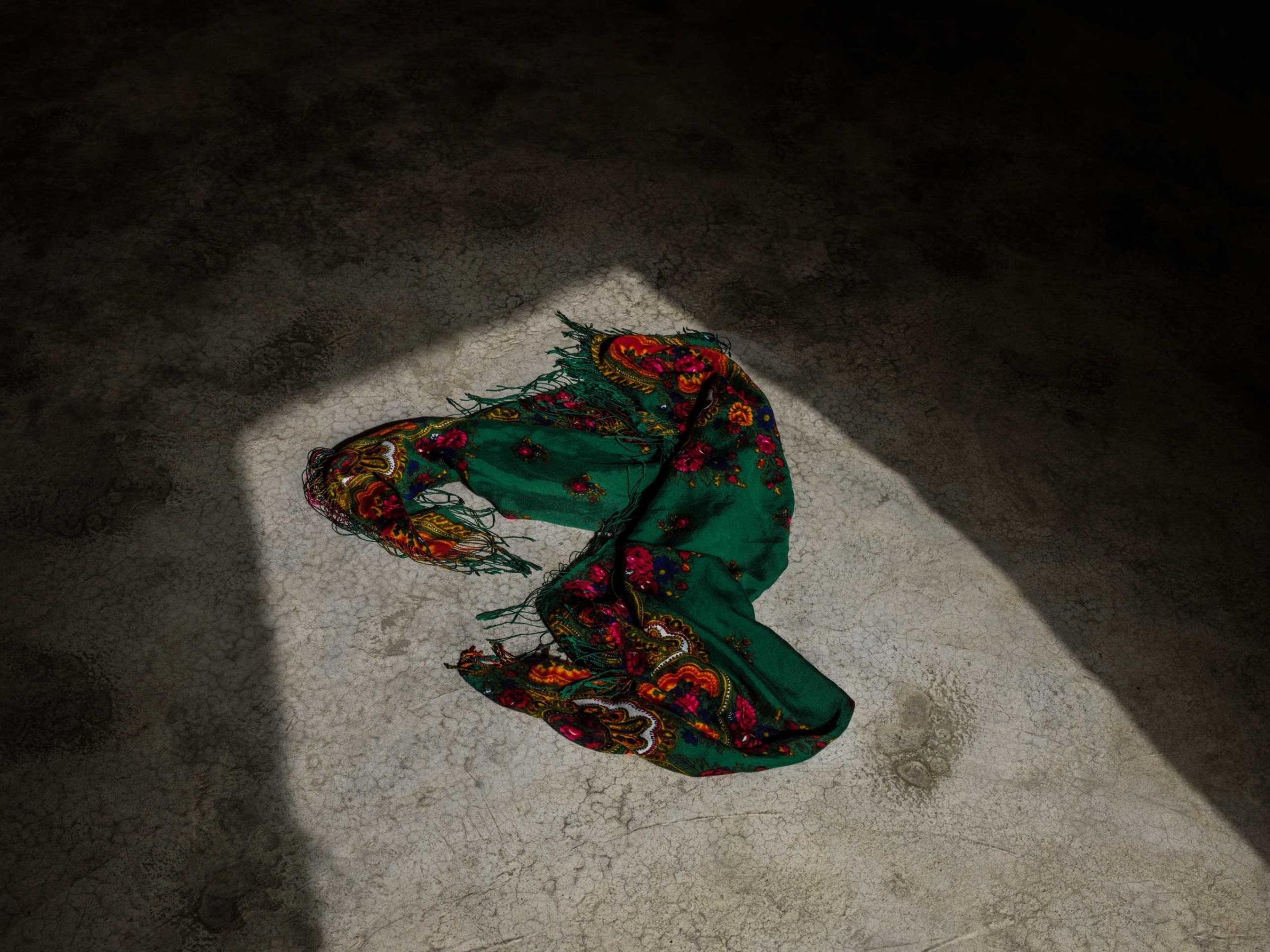
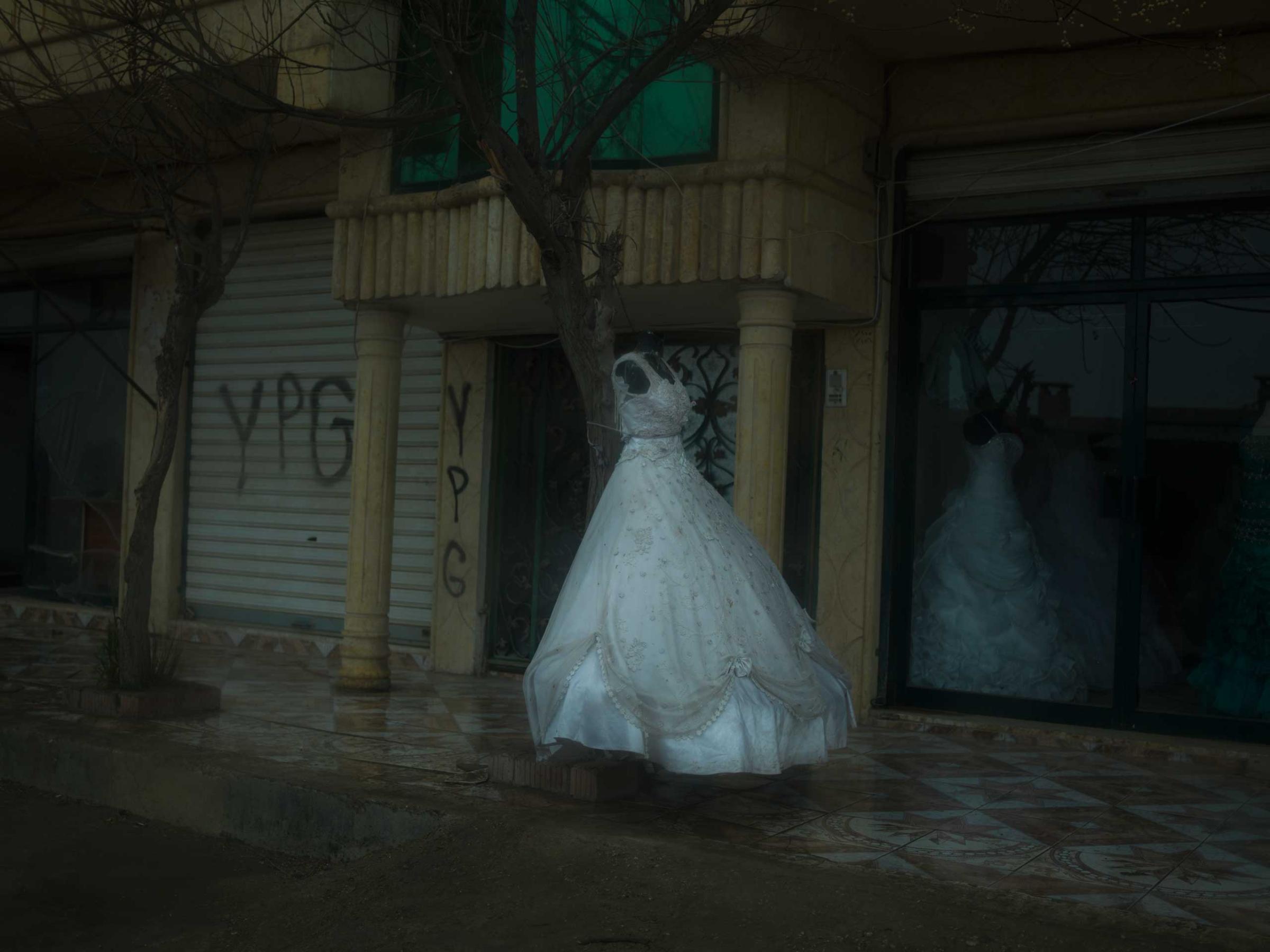
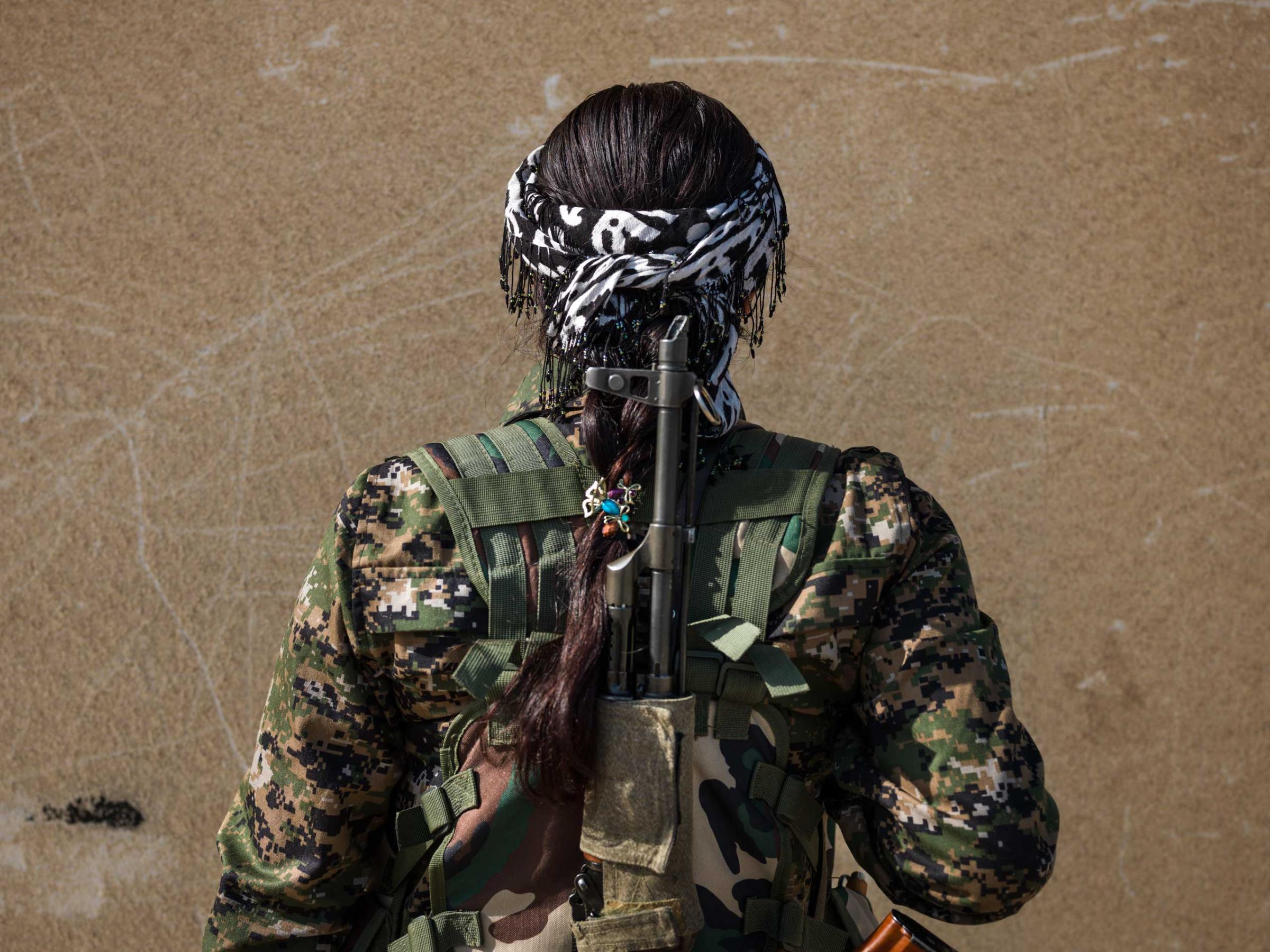
More Must-Reads from TIME
- Donald Trump Is TIME's 2024 Person of the Year
- Why We Chose Trump as Person of the Year
- Is Intermittent Fasting Good or Bad for You?
- The 100 Must-Read Books of 2024
- The 20 Best Christmas TV Episodes
- Column: If Optimism Feels Ridiculous Now, Try Hope
- The Future of Climate Action Is Trade Policy
- Merle Bombardieri Is Helping People Make the Baby Decision
Contact us at letters@time.com